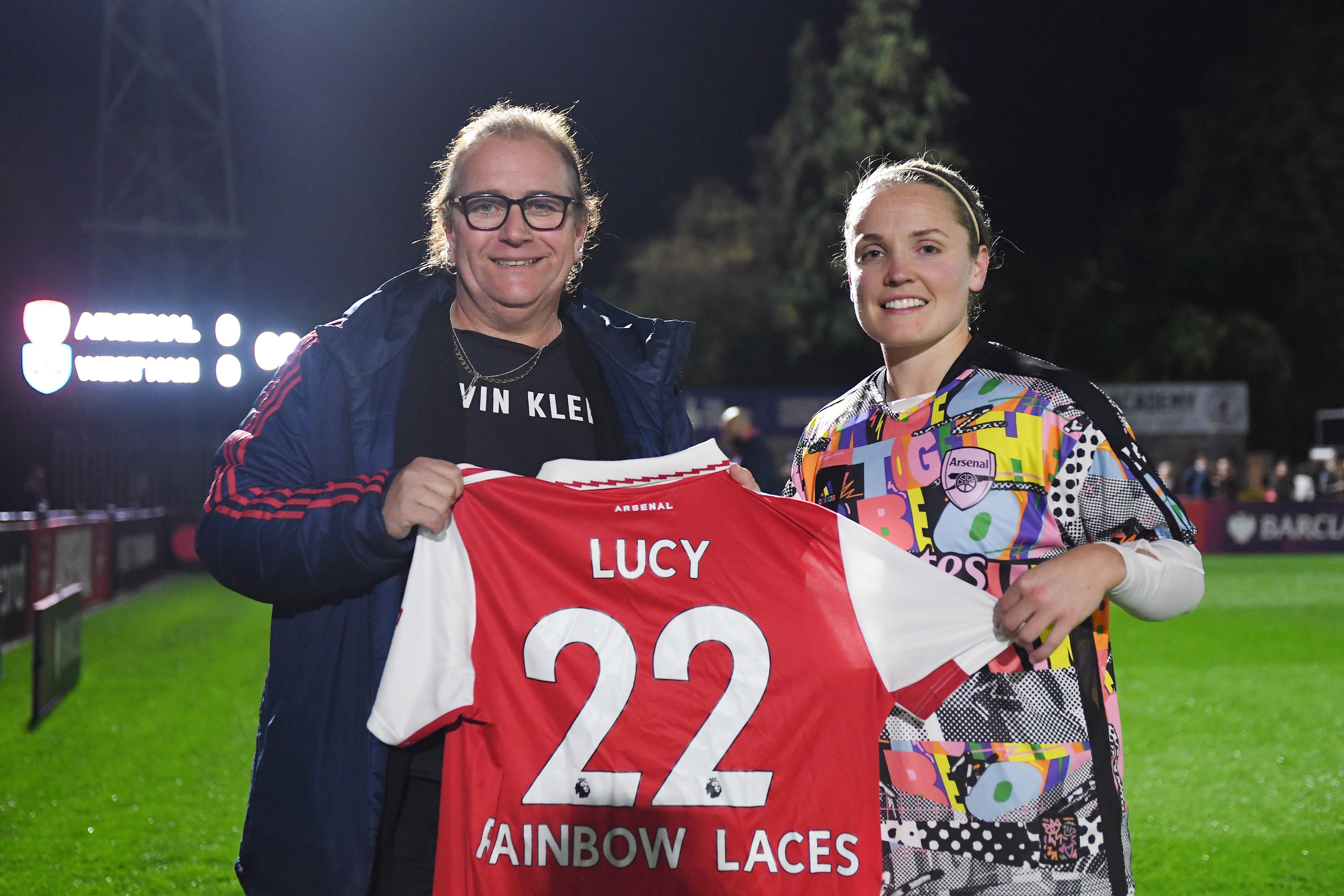Football’s first trans manager shows the sport isn’t just a ‘straight bloke’s’ space, whatever JK Rowling says
Witnessing Sutton United Women FC appoint transgender manger Lucy Clark – the first in English footballing history – was a moment for great celebration, writes Alex Greenwood. It’s a shame that the Harry Potter author decided to use it as an opportunity for mockery...


Your support helps us to tell the story
This election is still a dead heat, according to most polls. In a fight with such wafer-thin margins, we need reporters on the ground talking to the people Trump and Harris are courting. Your support allows us to keep sending journalists to the story.
The Independent is trusted by 27 million Americans from across the entire political spectrum every month. Unlike many other quality news outlets, we choose not to lock you out of our reporting and analysis with paywalls. But quality journalism must still be paid for.
Help us keep bring these critical stories to light. Your support makes all the difference.
In moments where religion has abandoned us, patriotism feels muddied by politics – and sources of information are harder to trust than ever – we turn to sport. Why? Because it gives us a sense of escapism, entertainment, even punishment. It also gives us a collective cultural identity.
With that in mind, witnessing Sutton United Women FC appoint transgender manager Lucy Clark – the first in English footballing history – was a moment for great celebration. It represents a small but vital step towards normalising diversity in sport. It gives trans people representation. It also opens the door for young people to see the LGBT+ community succeeding across public life.
And that’s exactly why JK Rowling’s reaction to the announcement – mocking Clark on Twitter/X, saying: “When I was young all the football managers were straight, white, middle aged blokes, so it’s fantastic to see how much things have changed” – is so depressing.
Rowling, who is well-known for her controversial views on trans rights (though she denies she is transphobic), completely missed the point: Clark’s appointment is groundbreaking. As the first openly trans woman to be in the top role at a fifth-tier side, Clark continues the rich history of women’s sport representing a sacred space of inclusion.
This means welcoming difficult conversations and encouraging debate – not shutting it down with a flippant or sarcastic comment. If we rely on sports teams to offer us a sense of who we are as a society, then we also rely upon the increased visibility of pioneering people excelling in their fields to reflect our diversity, too. This is how we open up conversations and help expand perceptions.
And who could fail to praise Clark’s tenacity, grit and trajectory? Her coaching career began at 16 and she went on to referee third-tier women’s football, smashing through barriers along the way. When asked about assuming the managerial position at the club she has supported since childhood, she described it as "a dream come true”. She’s widely loved and respected.
There was backlash to Rowling’s post (as well as some support) – but instead of listening and learning from it, she doubled down and denied that she’d ever “compared” Clark to a white man, stating: “I didn’t compare… he is one.”
What can she possibly hope to achieve from these kinds of incendiary comments? For someone who created books designed to open children’s minds to magic and difference, Rowling now holds fast to her “gender critical” beliefs. It’s increasingly becoming all that she’s known for.
Even Elon Musk has replied, stating: “While I heartily agree with your points regarding sex/gender, may I suggest also posting interesting and positive content on other matters?”
But while I feel compelled to defend Clark and her contribution to women’s football, I am achingly aware that there’s a trap, here, in criticising Rowling. It’s tempting to pass off her comments as a depressing fall from grace for a (once) national treasure, yet her 14.1 million followers on social media are testament that people are still listening. She has a huge platform. The tweet about Lucy Clark alone received more than 400,000 likes.
To my mind, the huge numbers of followers she has shows we need to exercise extreme caution. Last year alone, there was an 11 per cent increase in hate crimes against transgender people in England and Wales. The need to facilitate conversation around these issues is increasingly urgent. And sport can offer the perfect vehicle to do so.
But to challenge and teach people through lived examples like Clark necessitates empathy, awareness – and the desire to listen. These qualities are woefully absent from much online “discourse” today.
This is not a call to “cancel” J K Rowling and to further divide people into “them” and “us”, like she so often does. Instead, it feels an opportunity to lean closer to sport and the power it holds; not just in shaping culture to break down barriers, but in platforming and addressing challenging subjects.
Clark’s appointment signifies a seminal moment in the rapidly expanding sphere of women’s sport and the collective identity it sculpts. I only hope it can foster a more equitable society for all of us. For JK Rowling, however, it feels very much like an own goal.
Alex Greenwood is a musician and writer
Join our commenting forum
Join thought-provoking conversations, follow other Independent readers and see their replies
Comments